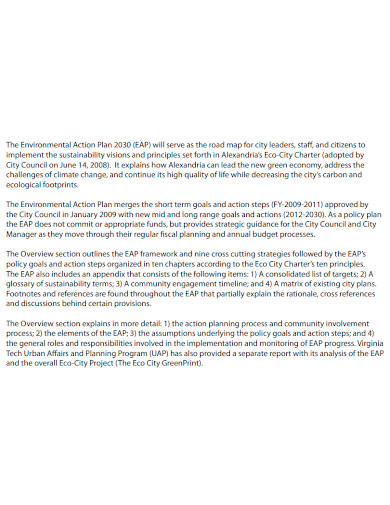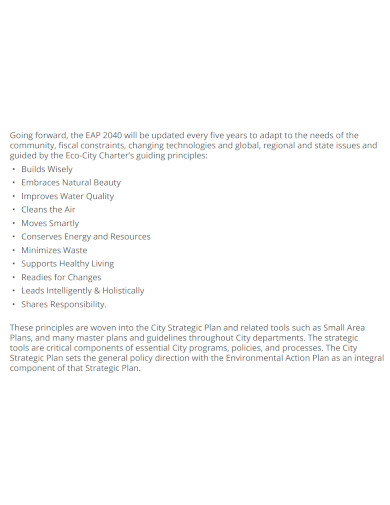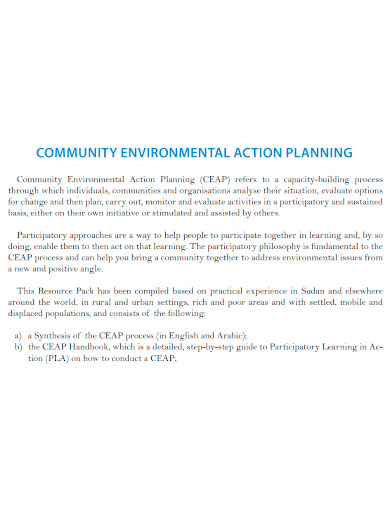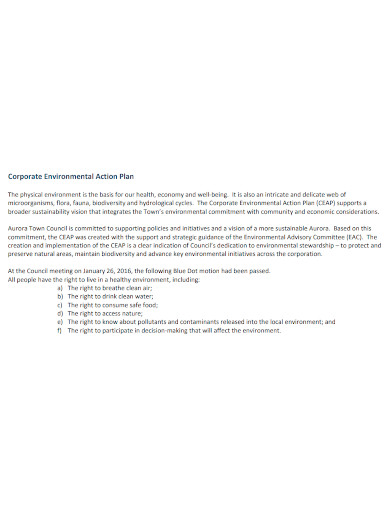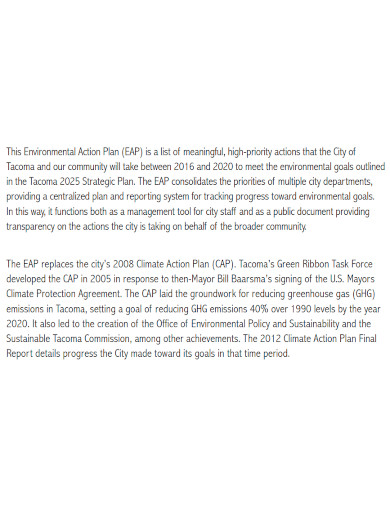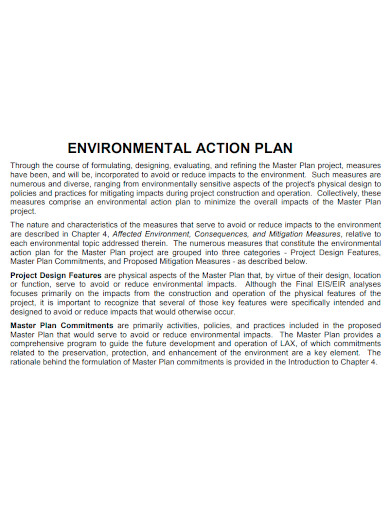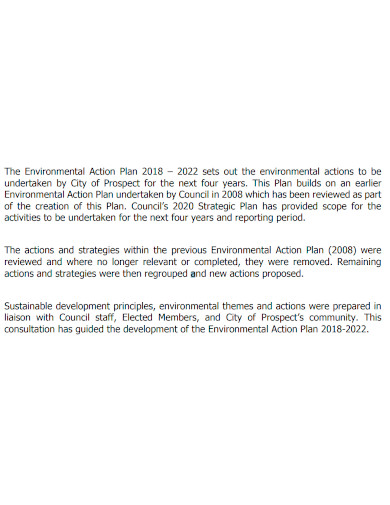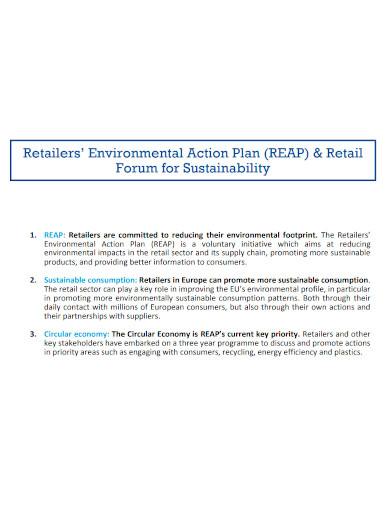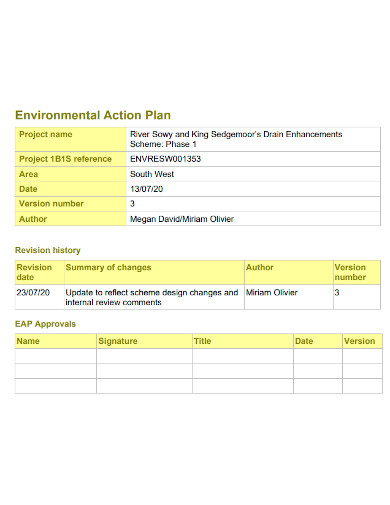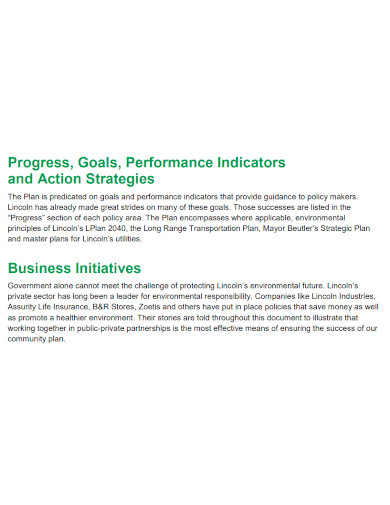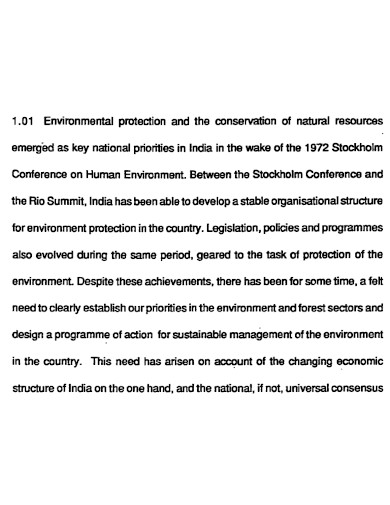Our environment is important to sustain life here on earth. Unfortunately, many factors are affecting the environment over the years and it is slowly deteriorating. However, all hope is not yet lost. People can still do measures to lessen pollution and help the environment recover from its damages. In order to do that, there should be an action plan set in place to properly implement policies and actions that help protect the environment and let it flourish further. Read the article to find out how to make an environmental action plan.
10+ Environmental Action Plan Samples
1. Environmental Action Plan Sample
2. Environmental Strategic Action Plan
3. Community Environmental Action Plan
4. Corporate Environmental Action Plan
5. Printable Environmental Action Plan
6. Environmental Action Plan Format
7. Standard Environmental Action Plan
8. Retailers Environmental Action Plan
9. Professional Environmental Action Plan
10. Formal Environmental Action Plan
11. National Environmental Action Plan
What is an Environmental Action Plan?
An environmental action plan helps your organization monitor and improve its commitment to environmental preservation. Your action plan must mirror the environmental management plan which includes four elements: commitment, planning, implementation, and evaluation to make it an effective environmental action plan. Usually, environmental managers are the ones that are responsible for monitoring environmental compliance and performance of both private and public sectors and for developing, implementing, and monitoring environmental strategies and actions that foster sustainable development.
How to Make an Environmental Action Plan?
Step 1: Define Your Goals
The first step in making an environmental action plan is knowing your motivation in pursuing to make an action plan for your environmental management system (EMS). Take note of your goals. To guide you in making goals, refer to the SMART (specific, measurable, attainable, relevant, and time-bound) goals to make your goals realistic and achievable. One of the examples that you can use as your goals, is improving your compliance with environmental regulations and help prevent pollution. You can set an objectives draft in this stage, although you might need to make changes as you go on.
Step 2: Ensure Commitment From the Organization
One of the most critical steps in the planning process is gaining top management’s commitment to supporting the development and implementation of your action plan. The management of your organization must understand the benefits of the action to help you implement it. Explain to them the strengths and limitations of your current policies and how these can affect the organization’s environmental performance. Make sure your management also has a role in ensuring that the goals of your action plan are clear and consistent with your other organizational goals. Once they’re committed, inform the rest of the organization.
Step 3: Review Your Existing Environmental Compliance Programs
Once you’ve got everyone in your organization on board, the next thing to do is to review your current environmental programs or system compliance. See to it the changes you need to do in order to improve your compliance. You can do this by assessing your organization’s structure, procedures, policies, environmental-related activities, and training. Ask your fellow employees relating to the effectiveness of the current environmental processes and procedures. They will identify the issues within these current practices and suggest opportunities to improve them. Their responses are helpful for you to formulate your course of action.
Step 4: Prepare Your Budget and Make A Schedule For Activities
Once you’ve reviewed and assessed your existing compliances, it’s time to prepare your course of action and the budget you need for the resources. Your course of action must explain the key actions you need to do, the people who will be responsible to do it, the resources you need, and the timeline of the action to be completed. Make sure your key actions reflect your goals and objectives; however make these flexible enough to avoid deterring your organization from doing these actions.
Your budget plan must describe clearly how the funds will be allocated to the resources needed for the action plan. You can ask help from your colleagues to help you draft these plans, especially if some key actions involved them or the department they belong. Once you’ve prepared an action plan and your budget, have these reviewed by your management.
Step 5: Monitor Your Progress
Once you’ve set your action plan, it doesn’t mean your work is done. To maintain the changes you implemented and keep track of your goals and objectives, monitor your progress regularly. Report your progress to all the members of the organization to help them be informed of where the organization stands in environmental compliance. This is useful especially if you need additional resources from the rest of the organization.
FAQs
What are the three pillars of sustainability?
The three pillars of sustainability are the economy, society, and environment. They can be interchangeably called as profit, people, and the planet.
What are 5 major environmental problems?
The most serious environmental problems that we are facing today are the greenhouse effect and global warming, deforestation, loss of biodiversity, disposal of waste, and ozone depletion.
What is a 3 point action plan?
The three-point action plan is: prepare, implement and lead.
Relay your small successes within your organization and outside of it. Promote your environmental actions through media platforms and encourage more people to be more conscious regarding our environmental needs. Through your contribution to minimizing adverse effects and restoration of the environment, you are helping make a big change to make the planet a better place to live in today and for the future to come. To help you get started on making your own environmental action plan, refer to our sample templates provided above. They are free so you can download various templates above!
Related Posts
FREE 10+ Project Corrective Action Plan Samples in MS Word | Google Docs | Apple Pages | PDF
FREE 10+ Business Corrective Action Plan Samples in PDF
FREE 10+ Audit Corrective Action Plan Samples in MS Word | Google Docs | Apple Pages | PDF
FREE 10+ Incident Corrective Action Plan Samples in MS Word | Google Docs | Apple Pages PDF
FREE 10+ Remediation Action Plan Samples in MS Word | Google Docs | Apple Pages | PDF
FREE 10+ Assessment Action Plan Samples in MS Word | Google Docs | PDF
FREE 10+ Workplace Emergency Action Plan Samples in MS Word | Google Docs | Apple Pages | PDF
FREE 10+ Business Emergency Action Plan Samples in MS Word | Google Docs | Apple Pages | PDF
FREE 10+ School Emergency Action Plan Samples in MS Word | Google Docs | Apple Pages | PDF
FREE 10+ Event Emergency Action Plan Samples in MS Word | Google Docs | Apple Pages | PDF
FREE 10+ Church Emergency Action Plan Samples in MS Word | Google Docs | Apple Pages | PDF
FREE 10+ Recruitment Action Plan Samples in MS Word | Google Docs | Apple Pages | PDF
FREE 10+ Earthquake Action Plan Samples in MS Word | Google Docs | Apple Pages | PDF
FREE 10+ Disciplinary Action Plan Samples [ Progressive, Corrective, Student ]
FREE 10+ Diabetes Action Plan Samples [ Emergency, School, Prevention ]

